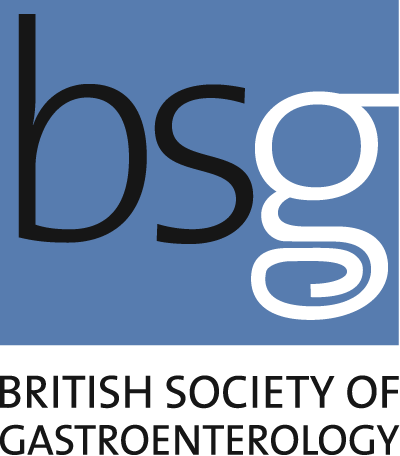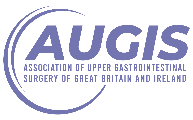Information and guidance for endoscopy services in the COVID-19 pandemic – an update
Published 15 January 2021
Download the PDF version of this guidance.
We updated our guidance in May 2022. Please click here to see our most recent guidance.
The COVID-19 pandemic is now surging for the third time since its onset in the UK in January 2020. This wave is being exacerbated by the new, more transmissible strain, resulting in massive pressure on healthcare services, in many cases, beyond that seen in the first wave. Throughout, BSG, JAG, ACPGBI, AUGIS and other professional groups have issued guidance to emphasise the need to try and keep the fragile recovery of endoscopy services going as much as possible through the second wave and beyond. With the recent, rapid spread of infections, particularly the new variant, and surging hospital admissions, we are providing further advice.
The situation in many parts of the UK is similar to, if not worse than, March-April 2020, at which time we advised that all endoscopy except emergency and essential procedures should be paused to allow services to reorganise. While the broad principles of this early guidance are still relevant, we have learned a great deal about COVID-19 and risks of infection since then and can refine our guidance.
This updated guidance recognises that there is regional variation in the severity of the current phase of the pandemic: in some areas hospitals are already overwhelmed and elective services have been stopped, while other areas are still able to run some, if not all, elective endoscopy. We hope this update will help local teams maintain endoscopy activity as much as possible and/or facilitate earlier and faster resumption of activity as local circumstances allow in the weeks to come. It is essential to mitigate the significant non-COVID harms that may occur.
The process of vaccinating at risk patients and health and care workers is now underway and should result in significant impact by mid-way through 2021. Vaccination for priority groups 1-4 should be completed in February. This includes all patients over 70, care home residents and their carers, and frontline health and social care workers. This should mean that all endoscopy staff and the majority of high-risk endoscopy patients will be vaccinated within the next 6 weeks.
Endoscopy is a high priority core service and integral to the diagnosis and treatment of digestive cancers (including bowel cancer screening) and other serious gut disorders eg upper GI bleeding, IBD and nutritional disorders. It is imperative that endoscopy units continue to function as much as is practically possible, despite the severe difficulties confronting us. Risks to endoscopy provision and patient care include:
- Reprovisioning of endoscopy and recovery areas
- Loss of staff through illness, self-isolating or deployment
- Patient reluctance to attend through fear of infection
- Unintended harm through delayed diagnosis of symptomatic patients and from interruption to bowel cancer screening.
Key strategies to ensure continuity of endoscopy services and safe patient care include:
- Endoscopy departments should be preserved as a priority and not requisitioned for COVID work, to allow cancer diagnostics and essential acute interventions such as ERCP and PEGs etc to continue.
- Existing additional endoscopy facilities for service restoration should be maintained where possible, particularly where they are off site and ‘COVID-19 safe’. Such capacity will be of great value when the current surge abates.
- Endoscopy teams should be preserved and not redeployed.
- Ongoing senior clinician triage and prioritisation of patients at most pressing need is essential to preserve already limited endoscopy capacity.
- The use of alternatives to endoscopy in keeping with recent guidance documents eg qFIT, radiological imaging, colon capsule endoscopy (CCE), Cytosponge etc.
- Communication to reassure GPs and patients that endoscopy units are open and that urgent referrals eg those on 2WW (USoC) pathways, FIT+ve bowel screening patients should continue.
- Reassurance to patients that it is safe to come into hospitals for endoscopic procedures and that these can be performed safely with minimal risk of infection.
- Assuring patient safety by creation and maintenance of ‘green’ pathways with patient testing 3-days pre-procedure in keeping with established guidance and by regular testing of all patient-facing endoscopy staff.
- Use of enhanced (‘level 2’) PPE when performing any endoscopic procedures if no ‘green pathway’ exists or if negative test results pre-procedure cannot be confirmed, while community infection rates remain high.
- Prioritisation of selected patients for pre-procedure vaccination (see below).
- Risk assessment of all endoscopy staff to protect those who are clinically extremely vulnerable (CEV) and prioritising them for early vaccination.
- Vaccination of all other patient-facing endoscopy staff.
- Current COVID-19 measures for pre-procedural testing and PPE must continue to be observed.
- Patients and staff who have been vaccinated should continue to observe social distancing, hygiene and PPE use.
- It is vital that the JAG quality standards are maintained including the ongoing audit of KPIs through NED.
- Services should check the JAG website to find the latest status of JAG accreditation and training activity.
Prioritisation of selected patients for pre-endoscopy vaccination
We support the UK government’s guidance on
levels of priority for vaccination. Every specialty will have patients it considers as deserving of being prioritised, even if they do not fall into the top categories. It is not realistic or feasible to consider early vaccination of all patients referred for endoscopy, but it is not unreasonable to consider this for specific patients in selected situations and the JCVI guidance allows for flexibility in vaccine deployment at local levels to take account of ‘exceptional individual circumstances’. We recommend:
1. Patients in all vaccine priority groups (groups 1-9) booked for routine endoscopy (e.g. surveillance) should be considered for deferral of their procedure until after vaccination.
2. Patients outside of priority groups 1-9 referred for urgent or 2WW endoscopy should continue to follow existing pathways subject to COVID-19 protocols and local capacity.
3. Patients in vaccination priority groups 1-4 referred through an urgent pathway for endoscopy (e.g. 2WW/USoC referrals) should continue to follow existing pathways to minimise delays to endoscopy. If a cancer is diagnosed they should receive vaccination with minimal delay such that, if major surgery, radiotherapy or chemotherapy are required, the risks of the consequences of exposure to COVID-19 are reduced.
4. Where local capacity for vaccination allows, consideration should be given to providing urgent vaccination for patients in other lower at-risk vaccination priority groups (5-9), including:
a. Those diagnosed with cancer on 2WW pathways or other diagnostic pathways
b. Patients with newly diagnosed moderate-severe IBD, or worsening IBD requiring treatment escalation to immunosuppressive or biologic therapy or surgery
c. Patients treated for variceal bleeding who enter or are in a banding programme
d. Those with time-critical conditions that require urgent therapeutic procedures that carry a significant risk of complications or where delay risks worse outcomes e.g. complex EMR or ESD for high-risk lesions, ERCP, EUS-guided interventions and PEG/PEG-J procedures.
We at JAG, BSG, ACPGBI and AUGIS, recognise the superb work all endoscopy staff are providing in unimaginably difficult circumstances. We would like to thank all of you at this time.
 |  |  |  |
Ian Penman Vice-President Endoscopy BSG | Mark Coleman Chair JAG Endoscopy | Steven Brown President ACPGBI | Giles Toogood President AUGIS |
 |  |  |  |
On behalf of:
• British Society of Gastroenterology (BSG)
• JAG Endoscopy
• The Association of Coloproctology of Great Britain and Ireland (ACPGBI)
• Association of Upper Gastrointestinal Surgeons (AUGIS)